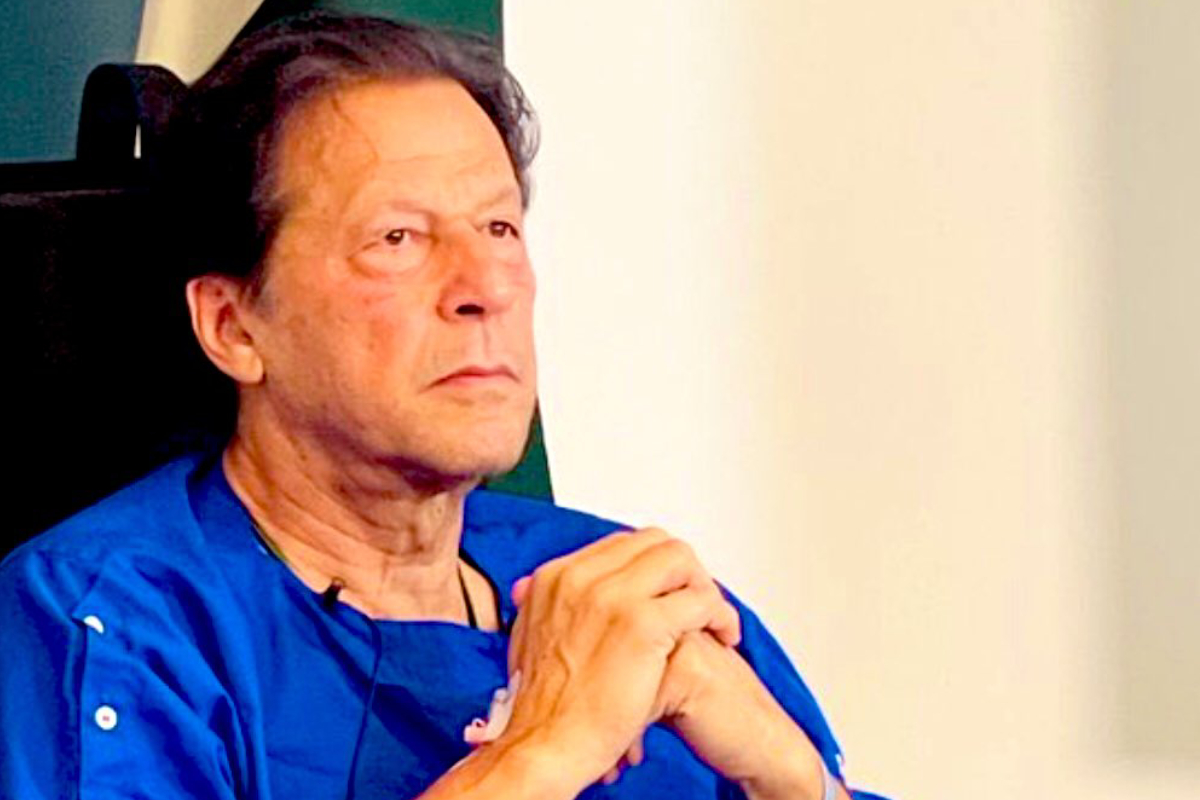

The attack on Imran Khan is not something out of the blue. The New Indian had expressed concerns back in early September about the possibility of incidents along the same lines.

The attack on Imran Khan is not something out of the blue. The New Indian had expressed concerns back in early September about the possibility of incidents along the same lines. Given Imran’s political heft among the youths of Pakistan, doubled with his reservations about the direction the all-powerful Pakistan Army was nudging him to take, he was beginning to stand out like someone determined to spoil the chances of Pakistan’s re-entry into the American sphere of influence.
The attacker probably fired a spray from an AK-47, aiming at the container that Imran Khan, his aides, and other senior members of his party, the PTI, were in, and Imran took two (some accounts say four) bullets in his right leg. There have been reports of several injuries and perhaps one death as well, with PTI spokesperson Fawad Chaudhury remarking, “If the shooter had not been stopped by people there, the entire PTI leadership would have been wiped out”.
Imran Khan was out at a protest rally on the GT Road in Wazirabad. Named the Real Freedom Rally, this rally is supposed to be a call for early elections, and it was headed towards Islamabad.
Since political assassinations are an old constant in Pakistan’s landscape, a cursory look at this incident presents little surprise. Pakistan has, after all, been living under its shadow for many years now.
But is that all?
For starters, there have been many important political leaders since Benazir Bhutto. They have been jailed, house arrested, tried, exiled, etc, but there have been no assassinations (except a stray attempt on PM Gilani), or threats of it. Benazir survived the first attempt before succumbing to the second.
There are many things, I am sure, that separate Imran and Benazir from the other leaders, however, it is the common strands connecting the two that should be of interest. There are two of them: popularity with the people, and political differences with the Pakistani deep state.
A medium-profile leader like Zardari or Sharif – people whose winning elections depend on a lot of variables and how best they play them to their advantage in that year or phase – normally presents no major threat to the Pakistani deep state and its idea of control.
It is the leader(s) who transcend(s) those poll gimmicks with their charisma (regardless of how smart or stupid they or their policies are) that cause nervousness within the deep state.
Benazir Bhutto, after her return from exile, was poised to win the elections. She had come back to a Pakistan that had begun missing her after years of Parvez Musharraf and Army rule. And she wasn’t particularly fond of the Army.
Today, Imran Khan – irrespective of his nearsighted economic policies – is immensely popular among the youth of Pakistan. So much so that he stands a comfortable chance of winning the next elections just like that. And like Benazir, he doesn’t like the Pakistan Army anymore.
His supporters have taken to the streets quite violently already. Unverified videos floating around on social media show young guys stomping on armoured vehicles on open roads, with no uniforms in sight. There have been several protests in front of different Army offices across different locations as well. With Imran Khan naming a few people that he thinks were behind this assassination attempt, these protests are expected to continue for a while.
Though predictions based on affairs such as these are something that should be avoided not merely because of the volatile nature of the incident, but also because of the presence of numerous other variables, each moving about with its own affinity and agenda; the mind nonetheless hovers around the temptation.
So here are just two broad contours of what it might look like for Pakistan in 2023:
a) Imran wins the elections and forms a government. That might just provide Pakistan with another chance to wean itself away from its influential army in an attempt to function a little like normal developing nations do. It would be an extremely tough journey, no doubt; given their economic condition, and their innate inability to survive without grants and doles from developed blocs and other international institutions – but that is a journey long overdue; the more Pakistan pushes it, the more painful it gets.
b) Imran Khan doesn’t make it till the elections. Or he makes it till the elections but not afterwards. That would be curtains for the PTI as a political heavyweight, at least temporarily, till a new charismatic leader takes charge in the future. If PTI wins but Imran doesn’t become the PM for some unavoidable reasons, then PTI’s quick journey to the pockets of the Pakistani deep state is almost like writing on the wall.
However, the one prediction that doesn’t require sieving through numerous alternatives is this: If the deep state gets back to driving Pakistan, this time with a fresh lease of life from the US-led West, there’s bound to be chaos and instability in Central Asia and territories neighbouring Pakistan – which include India and Afghanistan – this time, with the ISKP acting as Pakistan’s cat-paw. And counting the recent discussion with Ukraine about collaborating to develop nuclear weapons, it looks like it could even affect faraway Russia.
Arindam Mukherjee is a geopolitical analyst and the author of JourneyDog Tales, The Puppeteer, and A Matter of Greed.
Disclaimer: Views expressed above are the author’s own.